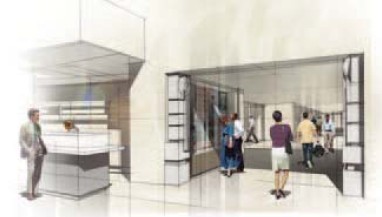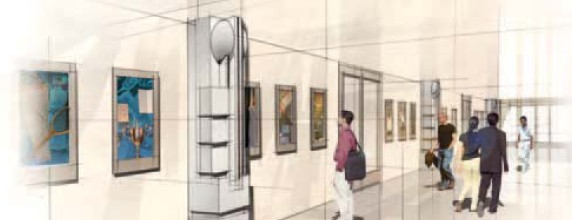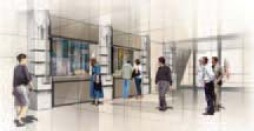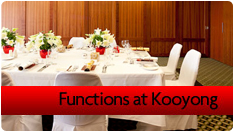The Kooyong Museum
An Australian Tennis Museum at Kooyong.
 “Kooyong – beyond 2010 represents a new era for the club for existing and future
members.” Bruce Henderson, Architect
“Kooyong – beyond 2010 represents a new era for the club for existing and future
members.” Bruce Henderson, Architect
The great legends of Kooyong are too numerous to list. They date back to the opening
of the famous stadium in 1927 when Gerald Patterson, a local hero (and the favourite
nephew of Dame Nellie Melba), defeated Jack Hawkes of Geelong in three-and-a-half
hours of sweltering heat to capture the Australian title for the first time.
Since then there have been scores of other historic occasions. One was the Davis
Cup Challenge Round of 1953 and the narrow victory of Sydney teenagers Lew Hoad
and Ken Rosewall over the reigning Wimbledon and US titleholders Vic Seixas and
Tony Trabert.

And who can forget the drama of the women’s singles of 1965, which ended in Brazil’s
elegant Maria Bueno writhing from an ankle injury and unable to complete her three-set
struggle with Australia’s Margaret Smith? Or the shock of the 1984 semi-final loss
of world champion Martina Navratilova to Helena Sukova, an upset that cost Navratilova
a calendar-year Grand Slam. These, and many other gripping spectacles at Kooyong,
form part of the story of Australian tennis – a story that any tennis museum would
wish to depict and document for the benefit of this and future generations.
 And that is exactly what the Australian Tennis Museum at Kooyong aims to do. The
museum will be created in a $12 million development that will extend and modernise
the clubhouse, a project called Kooyong – Beyond 2010. It will be different from
most institutions dedicated to the past in that it will be a living museum in which
the architect’s imaginative design will facilitate museum presentations throughout
the building. These displays will be moved or updated as circumstances dictate.
But, whatever the changes, members, guests and visitors will always be able to enjoy
an ambience rich in history and tradition as they use the various rooms.
And that is exactly what the Australian Tennis Museum at Kooyong aims to do. The
museum will be created in a $12 million development that will extend and modernise
the clubhouse, a project called Kooyong – Beyond 2010. It will be different from
most institutions dedicated to the past in that it will be a living museum in which
the architect’s imaginative design will facilitate museum presentations throughout
the building. These displays will be moved or updated as circumstances dictate.
But, whatever the changes, members, guests and visitors will always be able to enjoy
an ambience rich in history and tradition as they use the various rooms.
 Kooyong is rightly known as “the spiritual home of Australian tennis”. Its innovative
museum will ensure that members and visitors alike will understand why this is so.
Kooyong is rightly known as “the spiritual home of Australian tennis”. Its innovative
museum will ensure that members and visitors alike will understand why this is so.








